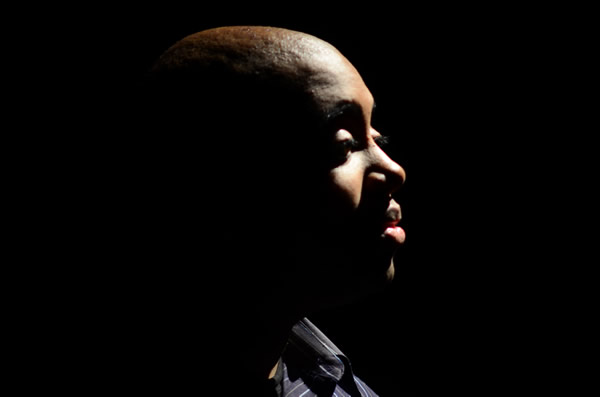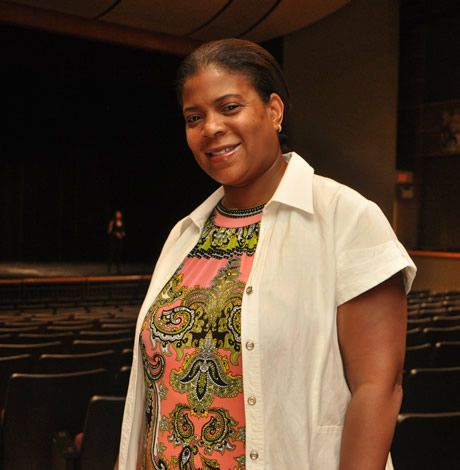Arts & Entertainment
Black and gay in D.C.
Theater festival features two playwrights tackling sexuality, AIDS on stage
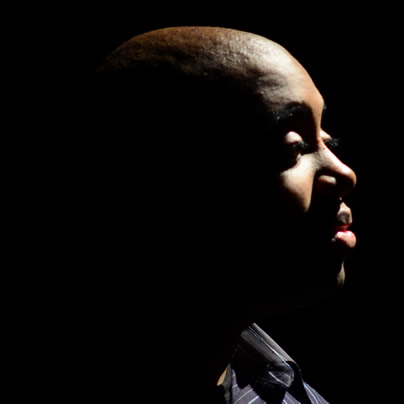
DC Black Theatre Festival
June 23-July 1
‘Moments of Truth,’ June 30
9 p.m., Navy Memorial Theater
701 Pennsylvania Ave., N.W.‘11 x 8 ½ inches,’ June 29
9 p.m., Howard University Blackburn Center
2400 Sixth St., N.W.Ticket prices vary.
dcblacktheatrefestival.com
In the upcoming DC Black Theatre Festival, a commemoration of African-American culture and works, two playwrights seek to shine a spotlight on the black LGBT community.
Monte Wolfe and Alan Sharpe, both black D.C. playwrights, have focused their pieces on sexuality, love and dealing with the complications of HIV/AIDS. Their plays are being featured in the festival, which starts June 23 and runs through July 1 at various locations in the D.C. area.
“A problem is a lack in visibility,” says Sharpe. “Representations of black gays have been very limited, and in the past those characters were used as something to ridicule.”
Sharpe’s piece, “11 x 8 ½ inches,” is a series of short scenes that explores the lives of black gay men living in D.C. Each scene explores ideas of sex and sexuality, sometimes entering into the erotic, raunchy and romantic. The piece is being featured in the New Works Reading Series, a part of the festival that showcases new works by upcoming and established playwrights in the area.
Reginald Richards, a gay actor in Sharpe’s play, says the piece works to break stereotypes of the “typical gay man.”
“People expect us to be very flamboyant and really sexual,” he says. “It is important for people to see we come with all different personalities and different ethnic backgrounds.”
Wolfe’s play, “Moments of Truth,” is also a series of short scenes that show a variety of people dealing with the complications of HIV/AIDS and how it affects love and relationships. With a less than $1,000 budget, the minimalist style keeps the focus on the short but charged interactions between the characters.
“There is something for everybody in the show, whether you are black, white, gay or straight,” he says. “It is about connecting AIDS to sexuality and working through those problems.”
Wolfe was diagnosed with AIDS in late 2004. This helped trigger his interest in HIV/AIDS outreach, in which he created the Brave Soul Collective, a theater company, in 2006. The company focuses on plays with LGBT themes.
Sharpe has been writing plays with LGBT themes since 1992. Coincidentally, he was also diagnosed with AIDS the same year. He and Wolfe have collaborated on several works, and Wolfe is an actor in one of the scenes of Sharpe’s piece.
“Alan has always been a mentor to me,” says Wolfe. “He makes it clear to me the character I want to perform and what I want to write about in my plays.”
Sharpe says that the festival is a good opportunity to shed light on talent that might otherwise be overlooked.
“It is amazing to see artists travel from all over the country to join together for a few days,” he says. “It allows artists to reach a broader range of audience.”
Barbara Asare-Bediako, an actor in Wolfe’s piece, identifies as, “a woman who just loves a woman.”
“My ultimate goal is to make black theater and gay theater a normal thing,” she says. “I want it so we can turn on the TV and it would just be part of society.”
However she says it is still important to focus on talent coming from the African-American community, and doing HIV/AIDS outreach. Asare-Bediako has been involved with several outreach programs, including HIPS, to help prevent the spread of HIV/AIDS.
“I had a cousin who passed,” she says. “I found out months after it happened. My uncle, his father, acts like he never had a son.”
Asare-Bediako also cites the high HIV/AIDS rate in the District as an important factor to consider when selecting themes for the festival. The newly infected HIV/AIDS rate among African-American women has nearly doubled in D.C.’s poorest neighborhoods in the past two years, according to a recent Washington Post report.
Despite their focus on LGBT themes, Sharpe and Wolfe work to keep all kinds of audience members involved.
“We focus on the universal elements and not on division,” says Wolfe. “We cry, we laugh, we dream just like everybody else.”
Jared Shamberger, an actor in Wolfe’s piece who also wrote some of the scenes, says the piece includes a little bit of everything and expresses that everyone experiences powerful moments of truth.
“Even though we do primarily focus on LGBT themes, LGBT people have heterosexual friends and vice versa,” he says. “I don’t think you could present the LGBT story without including the heterosexual experience as well.”
One of his scenes is about a heterosexual couple that just had unprotected sex for the first time before they even went on a first date. They talk about where they are as a couple and about getting tested.
Shamberger agrees that including themes that deal with the HIV/AIDS rate is important.
“The HIV infection is not making headlines anymore,” he says. “People are getting infected everyday still, and I think it is something that people should be made aware of.”
Both pieces develop their themes through short scenes rather than a longer narrative arc. Wolfe says this makes the piece more powerful.
“I think it keeps people on their toes,” he says. “I don’t think I want the audience to get married to one particular character. I want them to see some bits of themselves in all the characters.”
Sharpe and Wolfe say that including LGBT themes in the theater is a great way to make people aware of the LGBT community by drawing them into characters’ lives.
“Gay people go through the same thing, they fall in love and they get heartbroken,” says Bediako. “People need to see these stories, see that gay people live normal lives, whatever normal is.”
Shamberger says it is impossible to write a play about the African-American community without including the LGBT community.
“I think if we are trying to present the landscape of black experience we have to include LGBT people as well,” he says.
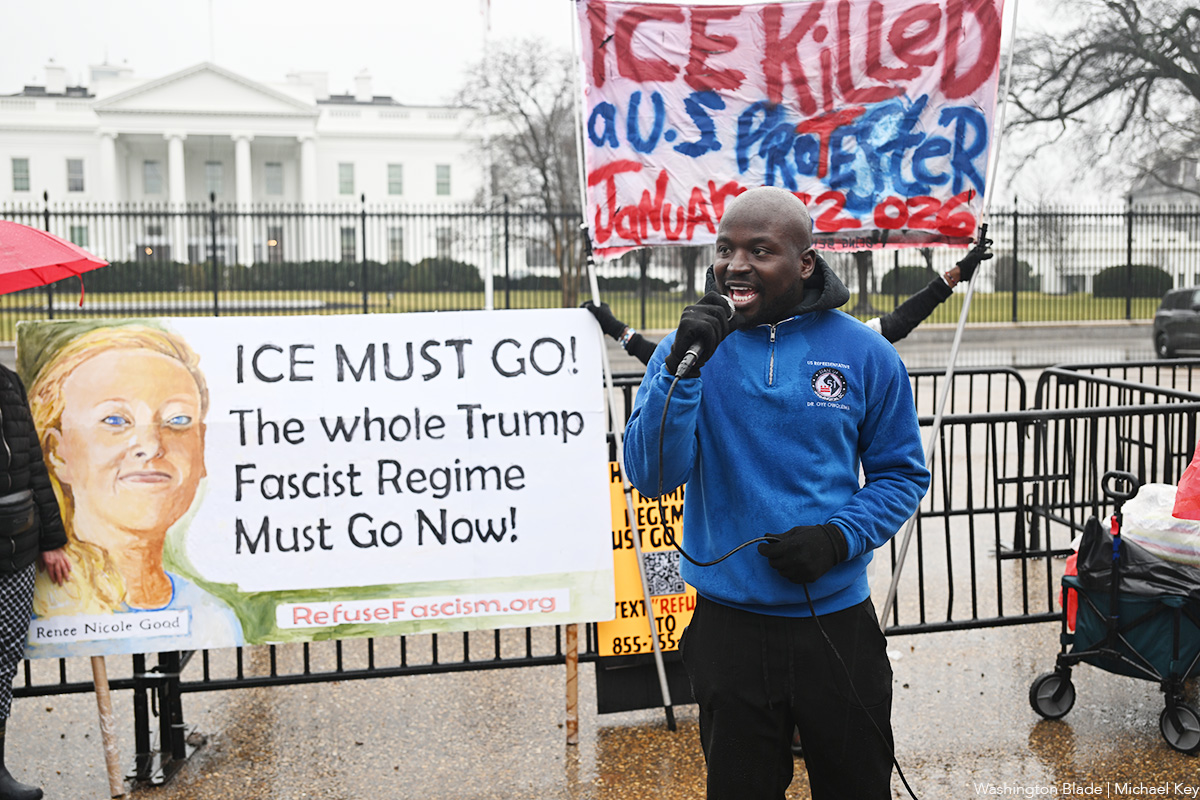
A protest was held outside of the White House on Saturday following the killing of Renee Nicole Good by a U.S. Immigration and Customs Enforcement agent in Minneapolis. Across the Potomac, picketers held signs calling for “Justice for Renee” in Tysons, Va.
“ICE Out For Good” demonstrations were held in cities and towns across the country, according to multiple reports. A march was held yesterday in Washington, D.C., as the Blade reported. Further demonstrations are planned for tomorrow.
(Washington Blade photos by Michael Key)
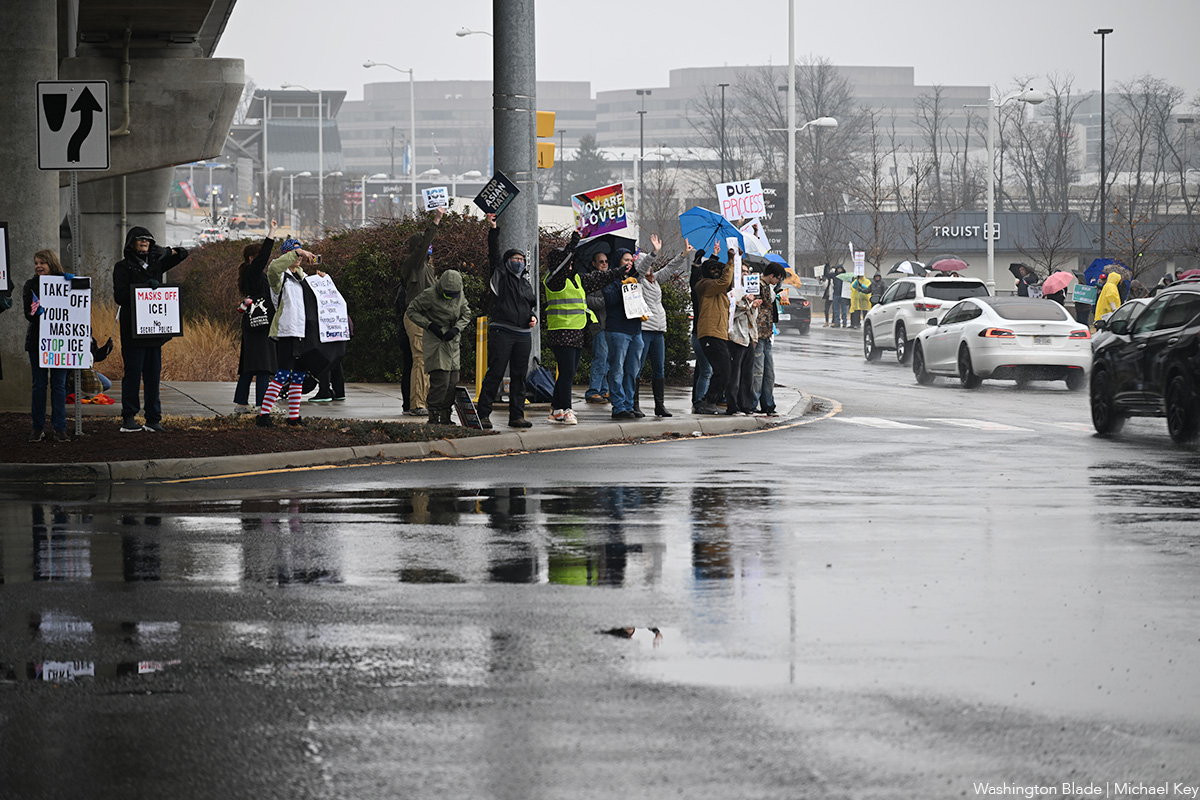
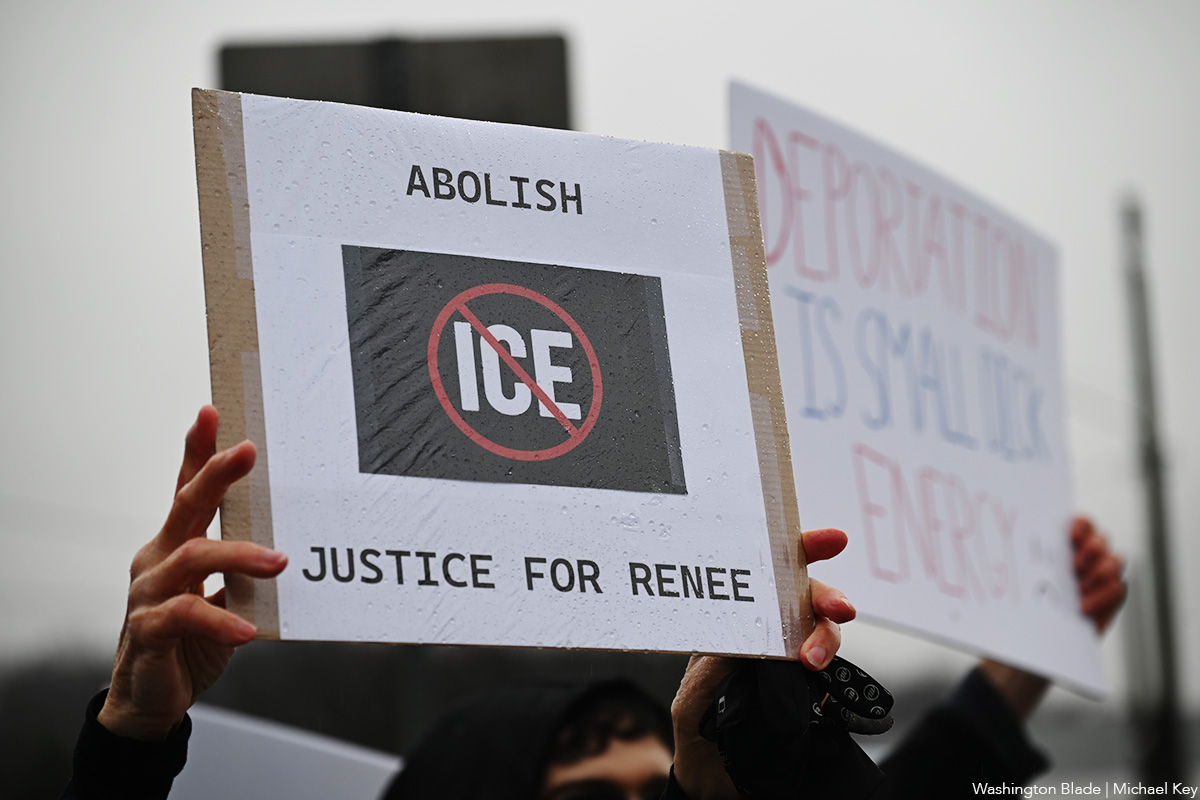
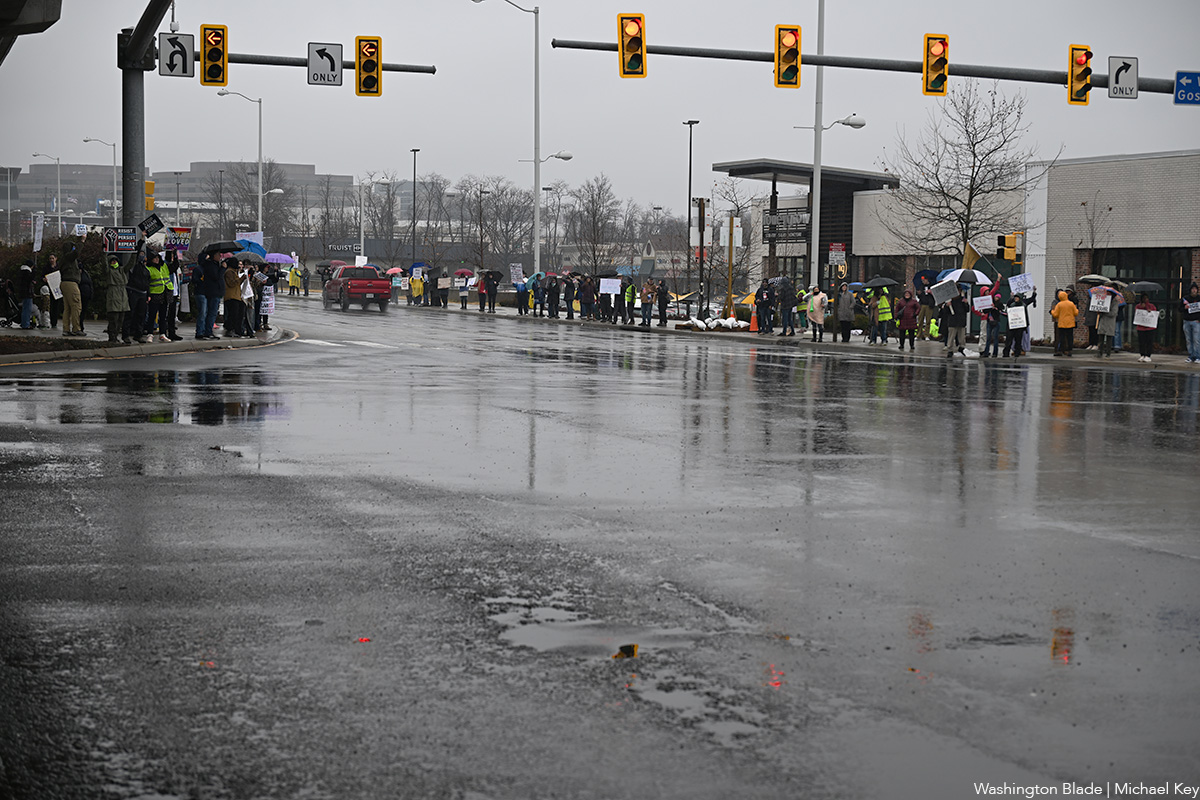
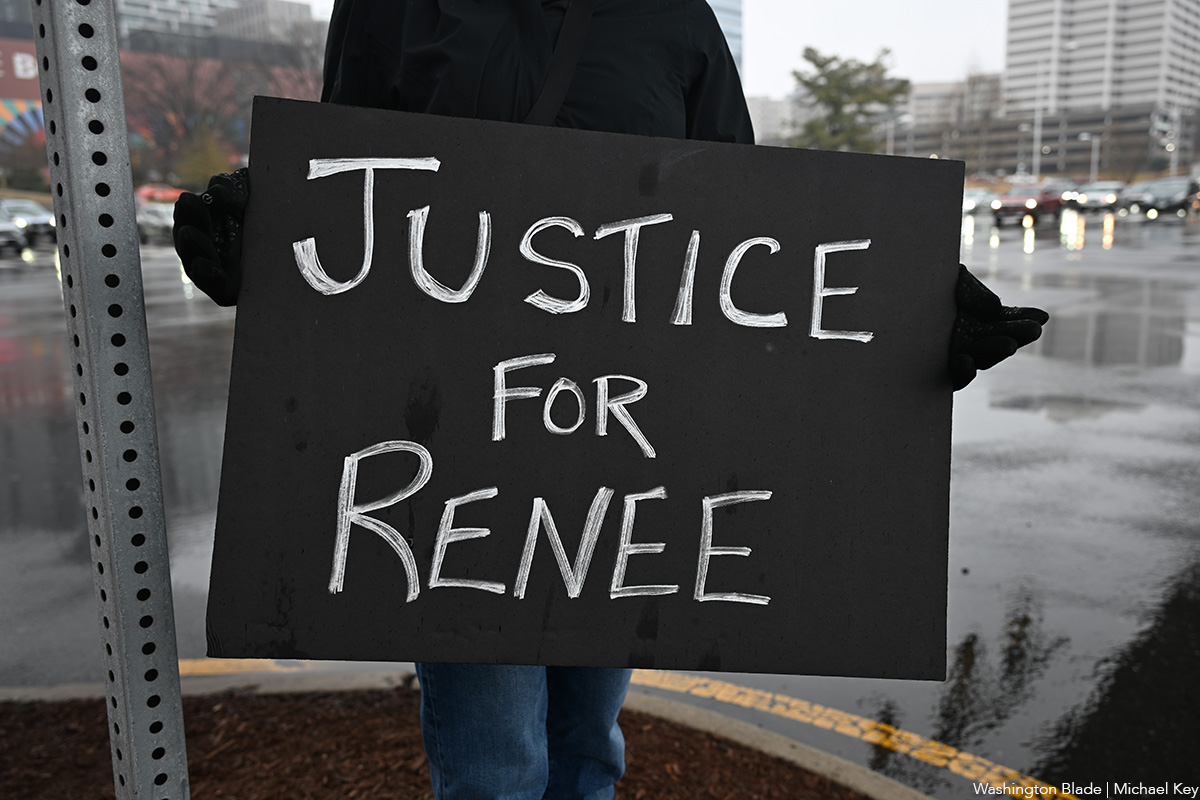

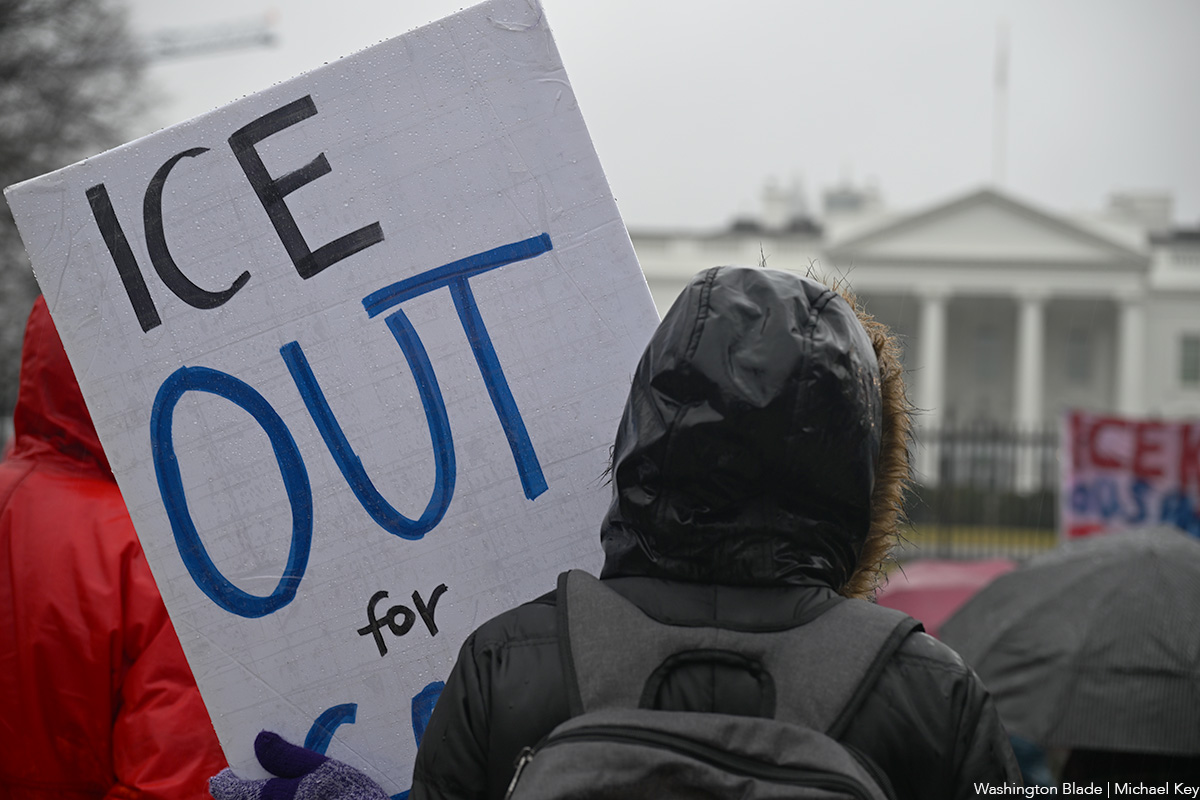
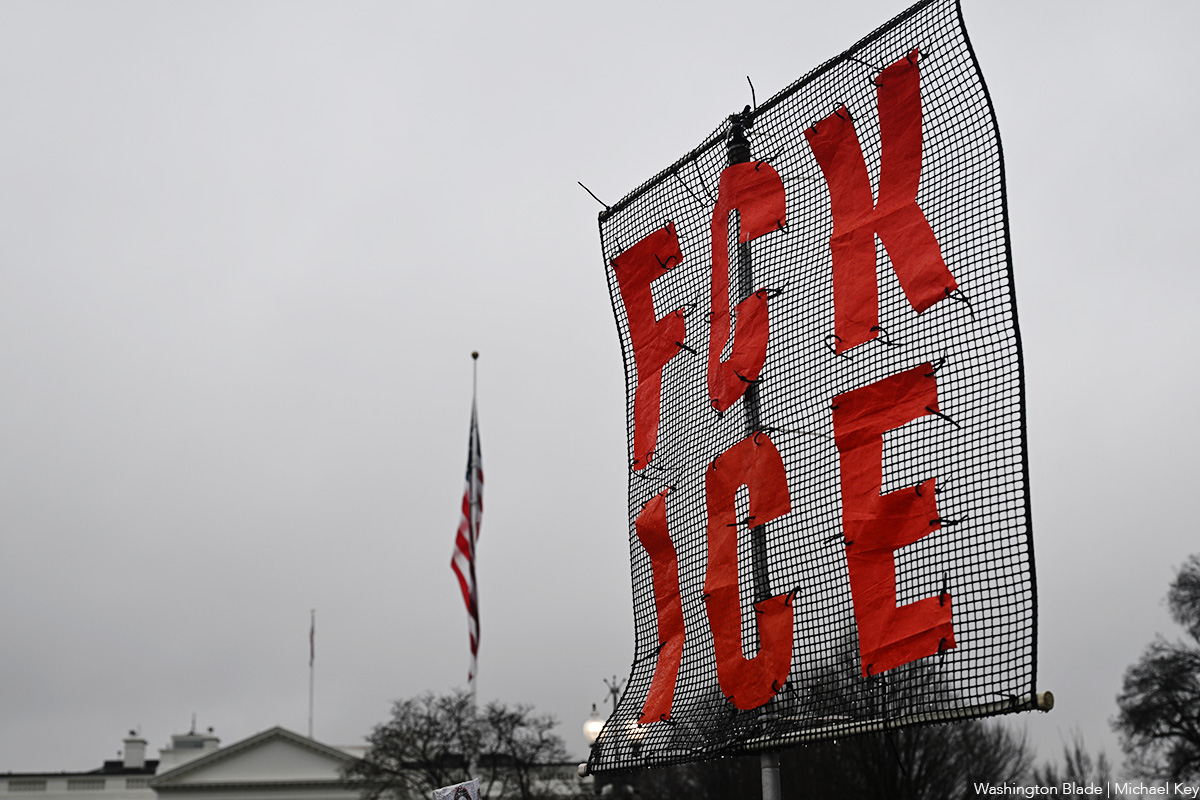
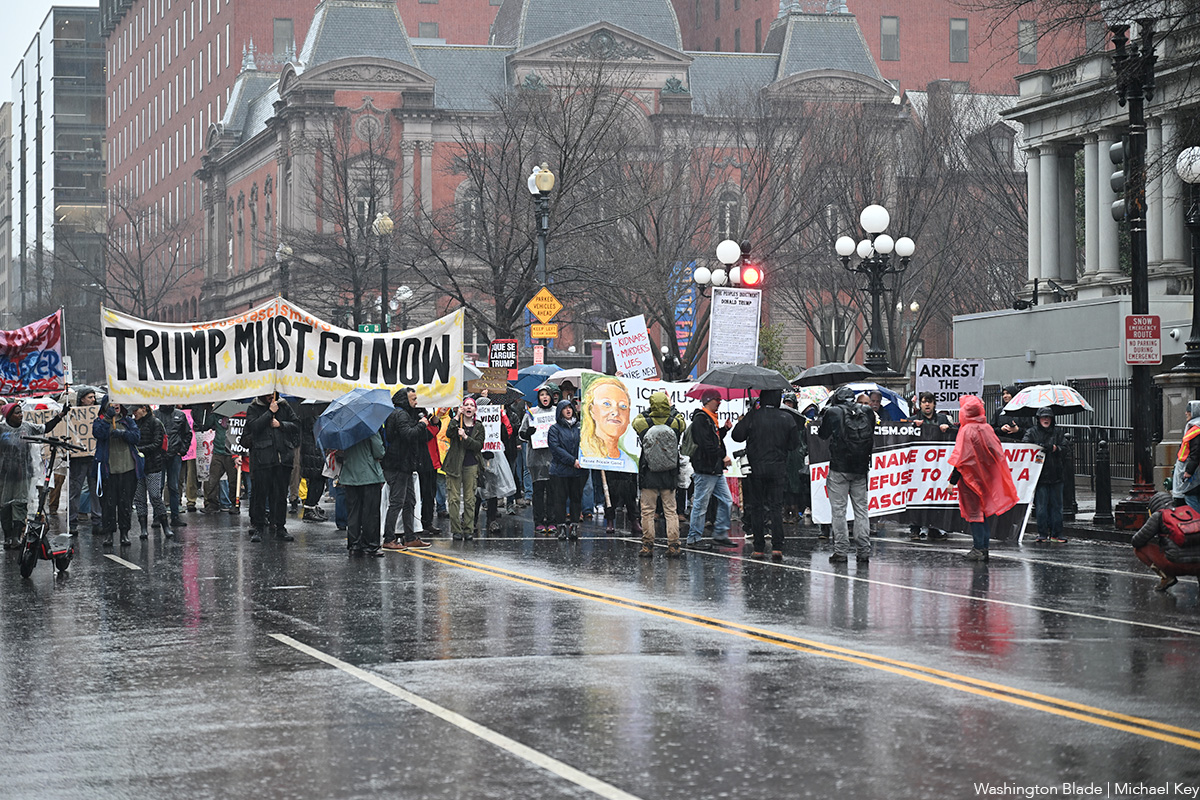

Books
Feminist fiction fans will love ‘Bog Queen’
A wonderful tale of druids, warriors, scheming kings, and a scientist
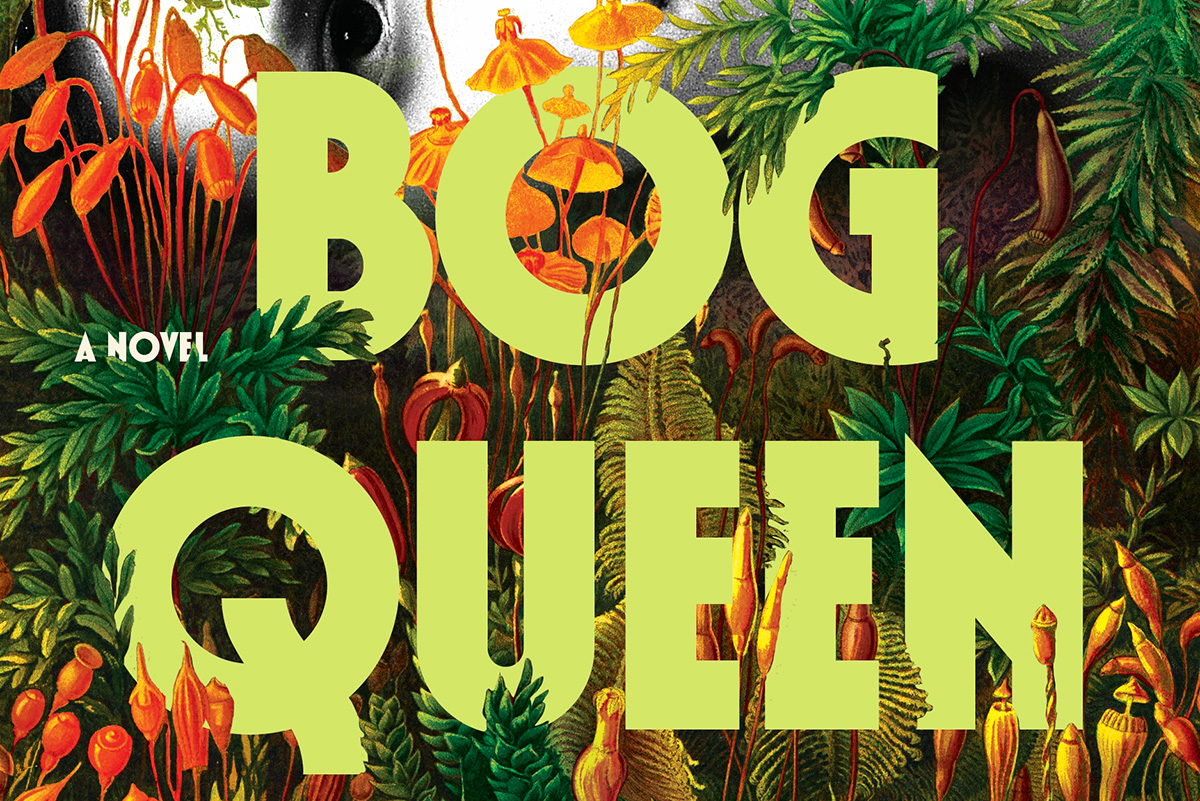
‘Bog Queen’
By Anna North
c.2025, Bloomsbury
$28.99/288 pages
Consider: lost and found.
The first one is miserable – whatever you need or want is gone, maybe for good. The second one can be joyful, a celebration of great relief and a reminder to look in the same spot next time you need that which you first lost. Loss hurts. But as in the new novel, “Bog Queen” by Anna North, discovery isn’t always without pain.

He’d always stuck to the story.
In 1961, or so he claimed, Isabel Navarro argued with her husband, as they had many times. At one point, she stalked out. Done. Gone, but there was always doubt – and now it seemed he’d been lying for decades: when peat cutters discovered the body of a young woman near his home in northwest England, Navarro finally admitted that he’d killed Isabel and dumped her corpse into a bog.
Officials prepared to charge him.
But again, that doubt. The body, as forensic anthropologist Agnes Lundstrom discovered rather quickly, was not that of Isabel. This bog woman had nearly healed wounds and her head showed old skull fractures. Her skin glowed yellow from decaying moss that her body had steeped in. No, the corpse in the bog was not from a half-century ago.
She was roughly 2,000 years old.
But who was the woman from the bog? Knowing more about her would’ve been a nice distraction for Agnes; she’d left America to move to England, left her father and a man she might have loved once, with the hope that her life could be different. She disliked solitude but she felt awkward around people, including the environmental activists, politicians, and others surrounding the discovery of the Iron Age corpse.
Was the woman beloved? Agnes could tell that she’d obviously been well cared-for, and relatively healthy despite the injuries she’d sustained. If there were any artifacts left in the bog, Agnes would have the answers she wanted. If only Isabel’s family, the activists, and authorities could come together and grant her more time.
Fortunately, that’s what you get inside “Bog Queen”: time, spanning from the Iron Age and the story of a young, inexperienced druid who’s hoping to forge ties with a southern kingdom; to 2018, the year in which the modern portion of this book is set.
Yes, you get both.
Yes, you’ll devour them.
Taking parts of a true story, author Anna North spins a wonderful tale of druids, vengeful warriors, scheming kings, and a scientist who’s as much of a genius as she is a nerd. The tale of the two women swings back and forth between chapters and eras, mixed with female strength and twenty-first century concerns. Even better, these perfectly mixed parts are occasionally joined by a third entity that adds a delicious note of darkness, as if whatever happens can be erased in a moment.
Nah, don’t even think about resisting.
If you’re a fan of feminist fiction, science, or novels featuring kings, druids, and Celtic history, don’t wait. “Bog Queen” is your book. Look. You’ll be glad you found it.
Movies
A Shakespearean tragedy comes to life in exquisite ‘Hamnet’
Chloe Zhao’s devastating movie a touchstone for the ages

For every person who adores Shakespeare, there are probably a dozen more who wonder why.
We get it; his plays and poems, composed in a past when the predominant worldview was built around beliefs and ideologies that now feel as antiquated as the blend of poetry and prose in which he wrote them, can easily feel tied to social mores that are in direct opposition to our own, often reflecting the classist, sexist, and racist patriarchal dogma that continues to plague our world today. Why, then, should we still be so enthralled with him?
The answer to that question might be more eloquently expressed by Chloe Zhao’s “Hamnet” – now in wide release and already a winner in this year’s barely begun awards season – than through any explanation we could offer.
Adapted from the novel by Maggie O’Farrell (who co-wrote the screenplay with Zhao), it focuses its narrative on the relationship between Will Shakespeare (Paul Mescal) and his wife Agnes Hathaway (Jessie Buckley), who meet when the future playwright – working to pay off a debt for his abusive father – is still just a tutor helping the children of well-to-do families learn Latin. Enamored from afar at first sight, he woos his way into her life, and, convincing both of their families to approve the match (after she becomes pregnant with their first child), becomes her husband. More children follow – including Hamnet (Jacobi Jupe), a “surprise” twin boy to their second daughter – but, recognizing Will’s passion for writing and his frustration at being unable to follow it, Agnes encourages him to travel to London in order to immerse himself in his ambitions.
As the years go by, Agnes – aided by her mother-in-law (Emily Watson) and guided by the nature-centric pagan wisdom of her own deceased mother – raises the children while her husband, miles away, builds a successful career as the city’s most popular playwright. But when an outbreak of bubonic plague results in the death of 11-year-old Hamnet in Will’s absence, an emotional wedge is driven between them – especially when Agnes receives word that her husband’s latest play, titled “Hamlet,” an interchangeable equivalent to the name of their dead son, is about to debut on the London stage.
There is nothing, save the bare details of circumstance around the Shakespeare family, that can be called factual about the narrative told in “Hamnet.” Records of Shakespeare’s private life are sparse and short on context, largely limited to civic notations of fact – birth, marriage, and death announcements, legal documents, and other general records – that leave plenty of space in which to speculate about the personal nuance such mundane details might imply. What is known is that the Shakespeares lost their son, probably to plague, and that “Hamlet” – a play dominated by expressions of grief and existential musings about life and death – was written over the course of the next five years. Shakespearean scholars have filled in the blanks, and it’s hard to argue with their assumptions about the influence young Hamnet’s tragic death likely had over the creation of his father’s masterwork. What human being would not be haunted by such an event, and how could any artist could avoid channeling its impact into their work, not just for a time but for forever after?
In their screenplay, O’Farrell and Zhao imagine an Agnes Shakespeare (most records refer to her as “Anne” but her father’s will uses the name “Agnes”) who stands apart from the conventions of her town, born of a “wild woman” in the woods and raised in ancient traditions of mysticism and nature magic before being adopted into her well-off family, who presents a worthy match and an intellectual equal for the brilliantly passionate creator responsible for some of Western Civilization’s most enduring tales. They imagine a courtship that would have defied the customs of the time and a relationship that feels almost modern, grounded in a love and mutual respect that’s a far cry from most popular notions of what a 16th-century marriage might look like. More than that, they imagine that the devastating loss of a child – even in a time when the mortality rate for children was high – might create a rift between two parents who can only process their grief alone. And despite the fact that almost none of what O’Farrell and Zhao present to us can be seen, at best, as anything other than informed speculation, it all feels devastatingly true.
That’s the quality that “Hamnet” shares with the ever-popular Will Shakespeare; though it takes us into a past that feels as alien to us as if it took place upon a different planet, it evokes a connection to the simple experience of being human, which cuts through the differences in context. Just as the kings, heroes, and fools of Shakespeare’s plays express and embody the same emotional experiences that shape our own mundane modern lives, the film’s portrayal of these two real-life people torn apart by personal tragedy speaks directly to our own shared sense of loss – and it does so with an eloquence that, like Shakespeare’s, emerges from the story to make it feel as palpable as if their grief was our own.
Yes, the writing and direction – each bringing a powerfully feminine “voice” to the story – are key to the emotional impact of “Hamnet,” but it’s the performances of its stars that carry it to us. Mescal, once more proving himself a master at embodying the kind of vulnerable masculine tenderness that’s capable of melting our hearts, gives us an accessible Shakespeare, driven perhaps by a spark of genius yet deeply grounded in the tangible humanity that underscores the “everyman” sensibility that informs the man’s plays. But it’s Buckley’s movie, by a wide margin, and her bold, fierce, and deeply affecting performance gives voice to a powerful grief, a cry against the injustice and cruelty of what we fumblingly call “fate” that resonates deep within us and carries our own grief, over losses we’ve had and losses we know are yet to come, along with her on the journey to catharsis.
That’s the word – “catharsis” – that defines why Shakespeare (and by extension, “Hamnet”) still holds such power over the imagination of our human race all these centuries later. The circumstantial details of his stories, wrapped up in ancient ideologies that still haunt our cultural imagination, fall away in the face of the raw expression of humanity to which his characters give voice. When Hamlet asks “to be or not to be?,” he is not an old-world Danish Prince contemplating revenge against a traitor who murdered his father; he is Shakespeare himself, pondering the essential mystery of life and death, and he is us, too.
Likewise, the Agnes Shakespeare of “Hamnet” (masterfully enacted by Buckley) embodies all our own sorrows – past and future, real and imagined – and connects them to the well of human emotion from which we all must drink; it’s more powerful than we expect, and more cleansing than we imagine, and it makes Zhao’s exquisitely devastating movie into a touchstone for the ages.
We can’t presume to speak for Shakespeare, but we are pretty sure he would be pleased.
-

 National5 days ago
National5 days agoWhat to watch for in 2026: midterms, Supreme Court, and more
-

 Opinions5 days ago
Opinions5 days agoA reminder that Jan. 6 was ‘textbook terrorism’
-

 District of Columbia5 days ago
District of Columbia5 days agoImperial Court of Washington drag group has ‘dissolved’
-

 Colombia4 days ago
Colombia4 days agoGay Venezuelan man who fled to Colombia uncertain about homeland’s future

